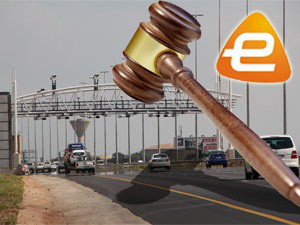
Hearings are expected to continue this week in the City of Cape Town's application to the Western Cape High Court to interdict the South African National Roads Agency (Sanral) from taking any steps to implement the proposed N1-N2 Winelands Toll Highway Project, pending the city's final review application.
The city is also seeking an order to compel Sanral to provide documents, which formed part of the agency's decision-making process. Sanral has subsequently refused to reveal these documents.
Sanral plans to upgrade stretches of the national road network in the province, as well as the second borehole at the Huguenot Tunnel, at an estimated cost of R10 billion.
The proposed toll gates will be situated at Joostenbergvalte, Hexpoort and the existing Huguenot toll along the N1. The toll gates on the N2 will be at Kuils Rivier, Sir Lowry's Pass and Bot River.
Last week, the court heard Sanral had no evidence to prove the proposed Winelands tolling project had been properly approved and that the transport minister at the time gave the project the go-ahead, without knowing what the full cost would be.
"We are seeking our opportunity in court, in our review application, to show that this project is unlawful and discriminatory, without having to also argue how to undo contracts that have already been signed and construction that has commenced," the city says in a statement.
The city has also raised serious concern about the socio-economic impact the proposed tolls would have on communities. "It will have a particularly profound effect on the poorest and most vulnerable groups living in Cape Town."
'Won't affect the poor'
Sanral has responded to this saying the proposed electronic tolling of the N1 and N2 in the Winelands would not have a negative effect on the communities of Mitchells Plain and Khayelitsha.
In a statement, Sanral spokesperson Vusi Mona says the claims are "unfounded" and "grossly misleading".
He adds that Sanral's plans will have little to no effect on these communities. "Again we are seeing a situation of communities being misled and people simply jumping to conclusions when it comes to tolling. The positioning of the toll plazas are such those communities will be able to go around them."
He also points out that it was unfortunate to see the poor being used as a "rented crowd" at the beginning of the case last Thursday. "Sanral established that some of them had no idea what they were in court to protest about."
Mona says the Western Cape has the second-highest number of vehicles using its roads in SA and congestion in the province is also on the rise. "We predict that unless something is done to release the pressure, this will cause a crisis. The same can be said for the second bore at the Huguenot tunnel which will face major problems with air quality and structural integrity in the not too distant future."
Opposition
The Democratic Alliance (DA) has also put its weight behind the City of Cape Town's e-tolling fight in the province as its members protested outside the Western Cape High Court last week.
Responding to Sanral's attempts to toll the Western Cape, DA national spokesperson Mmusi Maimane says the party completely disagrees with government's plans. "It needs to come up with an alternative model for the upgrading and maintenance of our country's roads."
He adds the DA is prepared to take the fight against e-tolling as high and as far as it can, including the Constitutional Court. "We still maintain that the state is acting unconstitutionally. It wants to make people pay for a system they are already funding through taxation."
The battle against e-tolls in Gauteng still continues, with discussions on the Transport Laws and Related Matters Amendment Bill postponed following a proposed amendment to the Bill by the ANC.
The Opposition to Urban Tolling Alliance is also waiting for its appeal against e-tolling to be heard in the Supreme Court of Appeal, in Bloemfontein, later this year.
Share